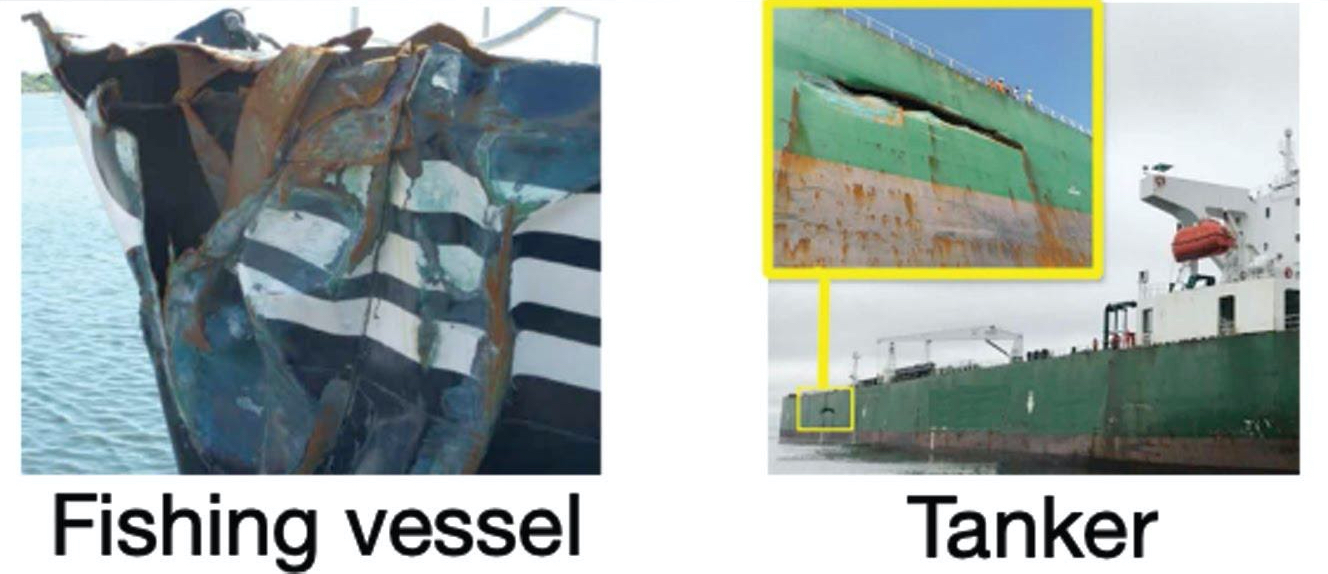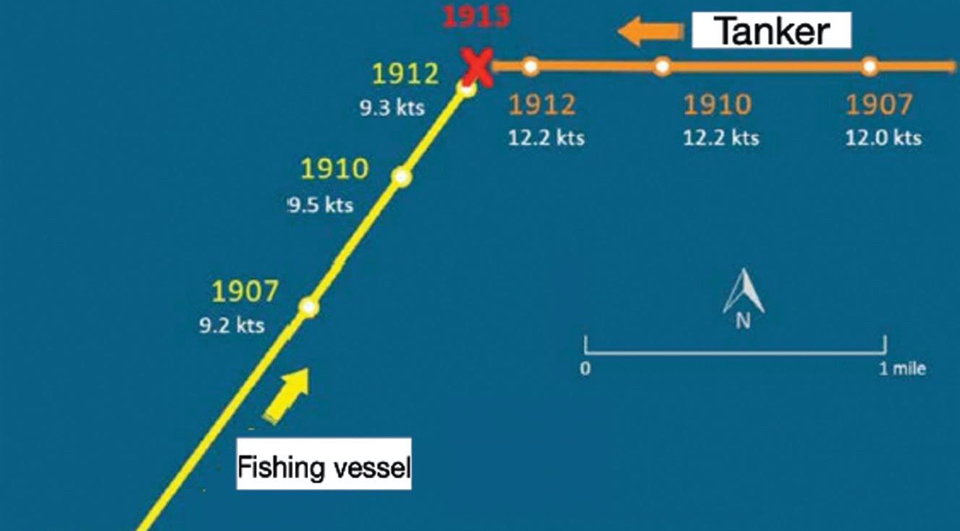Monitor other vessels and targets until all clear and do not undertake other tasks while navigating. This seems simple advice, but still a lot goes wrong in this respect. In a recent Mars Report, a tanker hit a fishing vessel due to wrong assumptions and ineffective lookout.
The Mars reports are compiled (anonymously) by The Nautical Institute to prevent other accidents from happening. A summary of what happened in this case:
A partially loaded tanker was underway at about 12 knots in a safety fairway. An officer of the watch (OOW) and lookout were on duty and the helm was on autopilot. Daylight was beginning to fade, but night had not yet fallen.
Ahead and to port the two bridge team members saw a fishing boat coming in their direction. Both believed, from visual observations, that it would pass astern. The master and the second mate were also on the bridge, but were working on ship’s business on computers.
At one point, the chief engineer came to the bridge to talk to the master. As he looked out of the window he saw the fishing vessel at very close range. His exclamation caught the master’s attention and the master left the work station to see the fishing vessel for himself. He immediately ordered hand steering and starboard helm as well as the sounding of the ship’s whistle.
Meanwhile on the fishing boat, the lone watchkeeper had been cleaning when he heard a metallic sound, which turned out to be the first contact of the fishing vessel’s outriggers with the side of the tanker. He tried to turn the vessel, but it was too late and it made heavy contact with the tanker.

Advice from The Nautical Institute
- Many collisions can be attributed to ineffective lookout and low situational awareness. This accident is yet another example.
- Never assume the give-way vessel will pass ahead or astern; plot the targets and follow the situation until all clear.
- Undertaking other duties that distract from your navigation responsibilities, as on the fishing vessel in this instance, is a recipe for an accident.
Mars Reports
This accident was covered in the Mars Reports, originally published as Mars 201980, that are part of Report Number 326. A selection of this Report has also been published in SWZ|Maritime’s January issue. The Nautical Institute compiles these reports to help prevent maritime accidents. That is why they are also published on SWZ|Maritime’s website.
More reports are needed to keep the scheme interesting and informative. All reports are read only by the Mars coordinator and are treated in the strictest confidence. To submit a report, please use the Mars report form.








